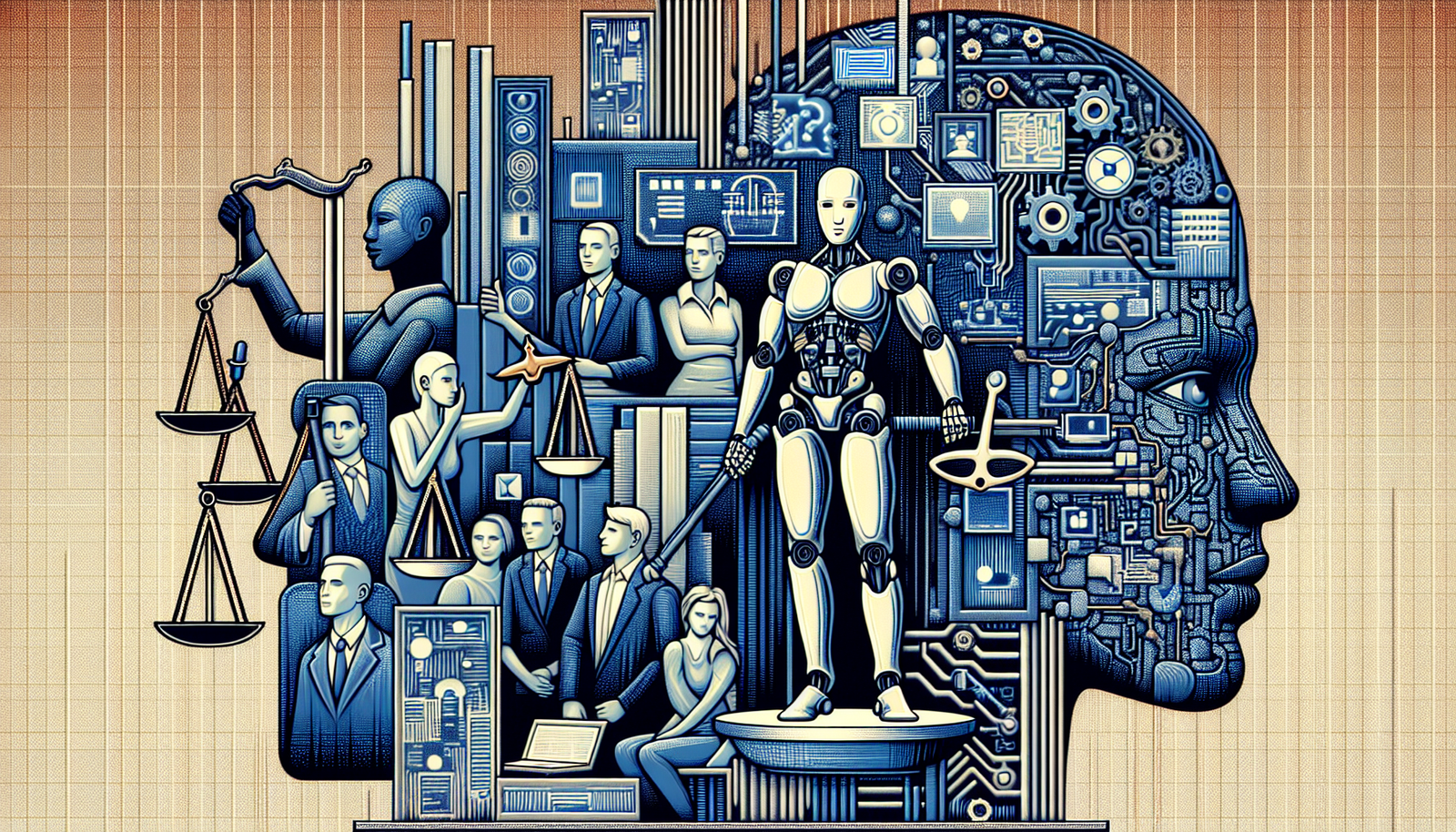As artificial intelligence continues to reshape industries and everyday life, the conversation around regulation has gained momentum. Recent developments, including Anthropics’ advocacy for stricter AI regulations, highlight the urgent need for a framework to address ethical concerns and societal impacts. Concurrently, the UK has taken a proactive stance by launching an AI testing platform aimed at fostering innovation while ensuring security and responsibility. This dynamic landscape presents both opportunities and challenges as stakeholders navigate the future of AI governance.
The Call for Regulation: A Necessary Step
Amid the rapid advancement of artificial intelligence technologies, significant voices in the field are calling for more robust regulations to guide its development. Anthropic, a prominent AI research company, has been vocal about the need for a regulatory framework that addresses safety and ethical implications. According to Anthropic’s leadership, the current pace of AI innovation, while exciting, poses risks that could have profound impacts on society if left unchecked.
This advocacy for regulation comes at a critical time when discussions around AI accountability, transparency, and ethical alignment are more important than ever. Anthropic aims to lead by example, signaling to other tech companies the need to prioritize ethical considerations along with technological advancements.
The UK’s Innovative AI Testing Platform
At the forefront of this regulatory conversation is the United Kingdom, which has made a bold move by introducing a testing platform for AI systems. This initiative is significant as it seeks to find a practical equilibrium between fostering innovation and securing the future of AI technologies. The platform will allow companies to test their AI products in a controlled environment before fully deploying them in the real world.
The UK government’s approach encapsulates a philosophy that encourages innovation while ensuring that these advancements do not compromise safety and public trust. By implementing a structured testing process, the UK aims to usher in a new era of responsible AI deployment, with an emphasis on accountability. This forward-thinking strategy could very well set a global benchmark, potentially inspiring other nations to adopt similar frameworks.
The Importance of Ethical Standards in AI
As AI systems become more integrated into daily life—from decision-making processes in healthcare to autonomous vehicles on our roads—the ethical implications of these technologies must be thoroughly considered. The adoption of AI comes with responsibilities, particularly in ensuring that systems are trained on diverse data sets to avoid biases that can have real-world consequences.
- Education and Awareness: Stakeholders must educate themselves on the ethical challenges posed by AI.
- Transparency in Algorithms: There should be open discussions regarding how algorithms operate and the data they use.
- Incorporation of Diverse Perspectives: A variety of voices must be involved in shaping AI technology to ensure it serves society as a whole.
Anthropic’s call to action emphasizes the significance of these ethical standards as foundational elements of their development processes. They recognize that a well-regulated environment will not only protect users but also enhance public trust in AI technologies, leading to more widespread adoption.
Key Takeaways: The Future Ahead
The combined efforts of advocacy from firms like Anthropic and the initiative from the UK government signify a budding recognition that AI regulation is not merely about creating rules; it’s about crafting a sustainable future for technological innovation. Here are some key takeaways that encapsulate this narrative:
- Regulation is essential for ethical AI deployment.
- The UK’s testing platform is a pioneering effort to balance innovation with responsibility.
- Engaging diverse voices in AI development processes is crucial for fair outcomes.
- Public trust in AI will grow with increased transparency and accountability.
As these conversations evolve, the emphasis on regulations shows a certain maturity in how we view artificial intelligence. These steps are not merely reactive; they represent proactive measures aiming to harness AI’s transformative potential while safeguarding society’s interests.
The Role of Stakeholders in Shaping AI Governance
It’s essential for all stakeholders—tech companies, lawmakers, and the public—to work collaboratively in shaping AI governance. This collaboration will ensure that the innovations driven by artificial intelligence are aligned with societal values and lead to positive outcomes.
- Tech Companies: They hold the responsibility for ethical development and deployment of AI systems. Companies like Anthropic demonstrate that corporate responsibility can coexist with entrepreneurial innovation. Neyrotex.com
- Lawmakers: They need to engage with technologists and ethicists to craft laws that reflect the rapid pace of technological advancements.
- The Public: Society must be informed and involved, advocating for their interests and holding developers accountable.
Engagement from all parties can lead to a robust regulatory framework that not only fosters innovation but also mitigates risks. Recognizing that AI will affect every sector—from healthcare to finance, from transportation to education—makes this collaboration even more crucial.
Global Perspectives on AI Regulation
Looking beyond the UK and Anthropic’s initiatives, various countries are taking different approaches toward AI regulation. The European Union has been at the forefront, proposing comprehensive legislation that could serve as a model for other regions. The EU’s approach emphasizes risk assessment and accountability, differentiating between various types of AI applications based on their potential risks to users and society.
Meanwhile, the United States has taken a more fragmented approach, with different states pursuing their own regulations, leading to a patchwork of laws that could complicate the landscape. Therefore, as the conversation around AI regulation continues to grow, it is crucial for international cooperation to address these discrepancies and align goals across borders.
As nations share their best practices and learn from each other’s experiences, a global consensus on AI regulation could emerge, creating a safer environment for development and deployment worldwide. If companies and governments work together, focusing on ethical principles and user safety, the future of AI can be bright and promising.
Conclusion: Embracing the Opportunities of Regulation
The launch of the UK’s AI testing platform and Anthropic’s push for regulations signify a critical juncture in the world of artificial intelligence. These initiatives exemplify how responsible governance can facilitate innovation while addressing the underlying ethical concerns that accompany new technology.
In the coming years, as conversations about AI regulation present themselves more frequently at the forefront of technological discourse, embracing these opportunities for collaboration, education, and reform is essential. By doing so, we can ensure that artificial intelligence serves as a catalyst for positive change rather than a source of uncertainty and risk.
For those interested in exploring more about AI governance and innovations in this space, visit Neyrotex.com for further insights and resources.
As we venture into the future of AI, let us adopt a mindset that values both innovation and societal responsibility, ensuring that the benefits of artificial intelligence extend to all. The road ahead will undoubtedly present challenges, but with a shared commitment to ethical development and regulation, we can navigate it successfully.







